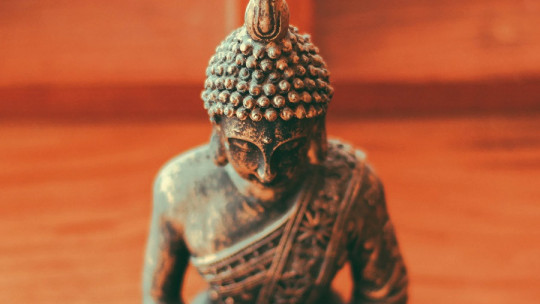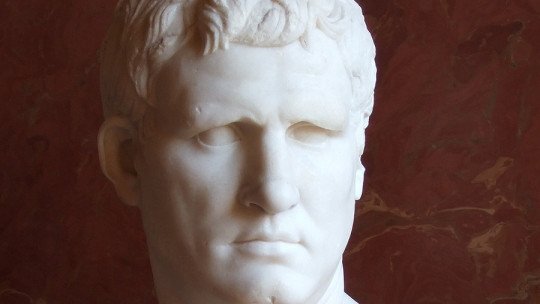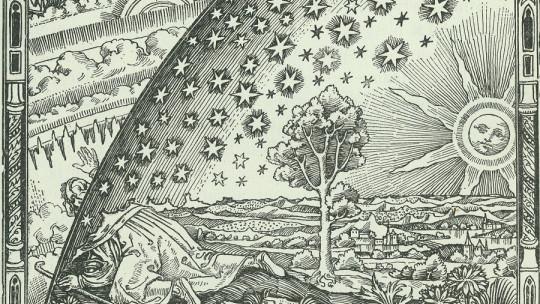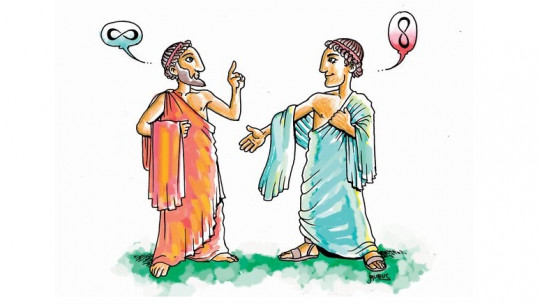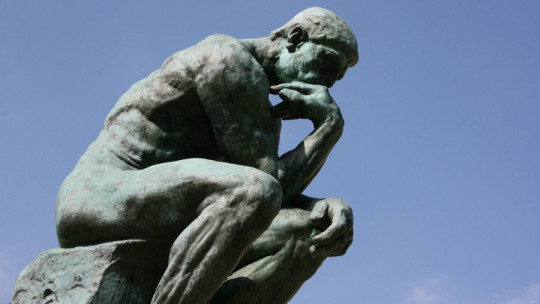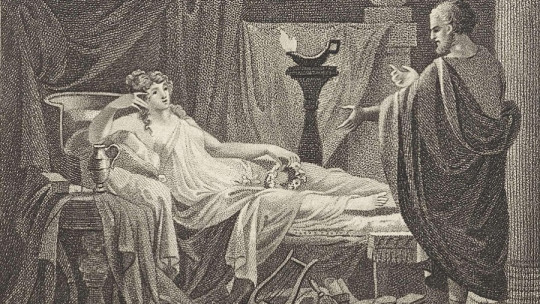
The Greek philosopher Epicurus believed that pleasure and happiness went hand in hand. His philosophy, Epicureanism, is considered a kind of medicine for the soul, so it is not surprising that it has had many followers throughout history.
Epicureanism is committed to the search for spiritual pleasures and the absence of fears in order to enjoy life It is a materialist current that advocates not being afraid of the gods or death, but rather satisfying our pleasures but in a rational way.
Having followers such as Horace, Lucretius and Virgil, Epicureanism has been a very famous movement throughout history. Let’s see what this hedonistic philosophical current consists of.
What is Epicureanism?
Epicureanism is a doctrine developed by the Greek philosopher Epicurus (341 BC – 270 BC) According to him, the pursuit of well-being of mind and body should be the goal of every person. Pleasures must be both spiritual and physical, and in his concept of happiness the absence of disturbances and pain to achieve it is also conceived. The human being is happy when he reaches the perfect balance between body and mind, which is called ataraxia.
Epicurus was born in Samos in 342 BC, into a family of Athenian nobility. At the age of fourteen he moved to Teos where he received the teachings of Nausiphanes, a disciple of Democritus. At eighteen he moved to Athens, after having traveled throughout Greece, where he would found his own school. Known as the garden of Epicurus, this school became famous for cultivating friendship and allowing women to participate unlike other Hellenic philosophical schools.

The Epicurean philosophy is that of an ethics of pleasure. It maintains that to achieve a happy life there should not be the presence of pain, both physical and moral In this sense, he pointed out that the presence of pleasure indicated the absence of pain, as well as any type of affliction, whether physical such as hunger or sexual tension or mental such as boredom, apathy or anger.
Epicurus considered that pleasures should not be limited to the body, but those of the mind should also be satisfied While those on the body were apparently more important to satisfy, they were also shorter. On the other hand, those of the soul, although more complicated, were also more lasting and helped mitigate the pain of the body. Hence, Epicurus promulgates the importance of seeking a balance between these pleasures, since only by doing so would happiness be achieved.
This philosophy is considered materialist. Epicurus considered that to free themselves from fear and achieve pleasure, human beings must free themselves from the fear of the gods, the fear of death and the fear of destiny, since with these fears it is not possible to enjoy life. In Epicureanism it is stated that one should not be afraid of the gods, that any idea of the afterlife is just an imposture, since the gods are alien to human affairs. We should not be afraid of death either because, while we are, death is not present and, when it arrives, we are no longer there.
Epicureanism is, along with cynicism, stoicism and skepticism, one of the first great schools that marked the passage from the classical era to the Hellenistic era in the history of Ancient Greece As great followers of this current we find Horace (65-8 BC), Virgil (70-19 BC), Lucretius (99-55 BC), Lorenzo Valla (1407-1457) and Pierre Gassendi (1592-1655).
The doctrines of Epicureanism were collected by Diogenes Laertius in his work Tetradármaco, a summary of Epicurean thought that defined them as the “maximum capitals.” In this work we talk about four main postulates:
Types of pleasures
Epicurus considered that both pleasures and afflictions were caused by the satisfaction or impediment of the satisfaction of appetites. In his Epicurean philosophy it is considered that there are four types of pleasures
Other types of pleasures that Epicureanism talks about are the pleasures of the soul; the pleasures of the body, which are the most important for the survival of the organism; stable pleasures, which are those that are felt when one does not have any type of pain or affliction; and mobile pleasures, which can be both physical and mental and involve some type of change. Among the latter we would find the pleasure of joy.
Hedonism and Epicureanism
Although Epicureanism is considered a hedonistic current, it should be said that it does not completely coincide with hedonism. Epicureans aim to achieve physical, intellectual and emotional fulfillment, while hedonists focus more on the body leaving aside the rest of the non-physical pleasures and needs.
Epicureans must avoid pain and disturbances, seeking pleasure, but not without going overboard either, since excessive luxuries and comforts are not useful for living a life in harmony and enjoying peace. Although many Epicureans led a life isolated from the world, they did not completely dispense with company but rather liked to forge friendly relationships and maintain interesting conversations where ideas and opinions were exchanged.
It should be noted that Epicureanism searches for pleasure without leaving reason aside The Epicureans considered that, on more than one occasion, it is necessary to accept pain that can bring us greater pleasure. And also the other way around: we must reject a pleasure that, in the future, could bring us greater pain. Only by associating happiness with reason is it possible to achieve ataraxia and a state of serenity where there are no disturbances.

